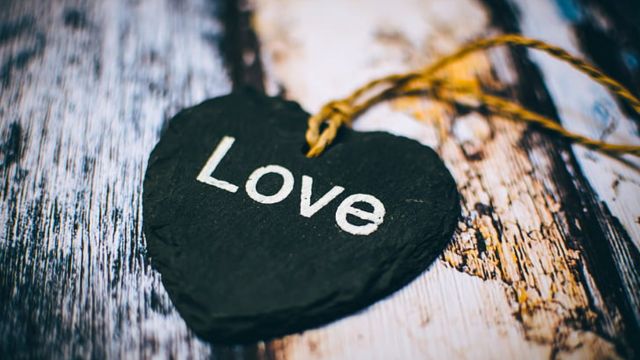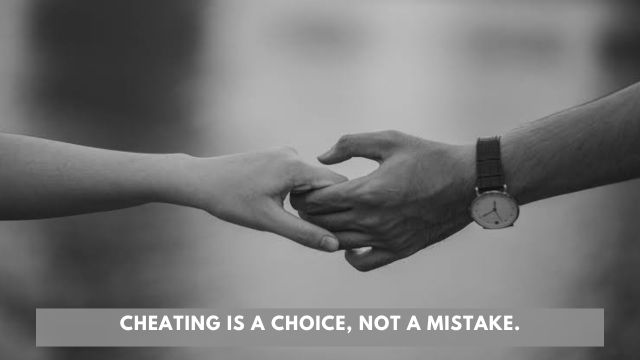No offence but cheating is a choice, not a mistake. We’ll tell you why. Cheating, whether in relationships, academics, or life in general, is an issue that ends up in heated debates and deeply hurt emotions. At its core, cheating is a betrayal—a breach of trust that leaves lasting scars. But there’s a lingering question that many grapple with: cheating is a choice, not a mistake, really? Let’s dig into this topic with some deep sense and a sprinkle of hard truth.
Always A Topic To Debate
We’ve all heard the excuses. “I made a mistake,” they say. “I didn’t mean to do.” But let’s be honest here. Did you accidentally trip and fall into an affair? Slip and drop a few answers on your exam paper. Cheating, in all its forms, rarely happens by pure accident. It’s a conscious choice, not a moment of unintended clumsiness. You don’t have to be a master to decide; cheating is a choice, not a mistake. So, cheating is a choice, not a mistake.

It’s easy to dismiss cheating as a simple error in judgment. After all, calling it a mistake somehow softens the blow, and makes the cheater seem like they were just caught up in the moment. But in reality, there’s a lot more intention behind it. Choosing to cheat means disregarding the consequences of those actions for a fleeting moment of satisfaction or escape. So, let’s be clear: Cheating is a choice, not a mistake.
The Psychology Behind Cheating: Why Do People Cheat?
To understand why cheating is a choice, we have to look at the psychology behind it. People cheat for various reasons—some cheat out of insecurity, some due to emotional disconnection, and others because they believe they won’t get caught. But here’s the kicker: In every scenario, the cheater makes a series of choices. They choose to act on their impulses, knowing full well that the consequences could be disastrous.
Sure, emotions are complicated. And yes, life can be tough. But being emotionally disconnected from a partner, or feeling pressure in a high-stakes environment, doesn’t make cheating a “mistake.” It’s a choice to take the easy way out, ignore the difficult conversations, and disregard the trust that has been built.
Mistakes vs. Choices: What’s the Difference?
Let’s break this down further. A mistake is forgetting your friend’s birthday. A mistake is leaving your keys in the ignition and locking yourself out of your car. Mistakes are unintentional, made in the spur of the moment without foresight.
A choice, however, is deliberate. When someone cheats, they’re not just making an impulsive mistake. They’re making a conscious decision to act in a way they know is wrong. They’re choosing to go down a path they understand might hurt others. And whether it’s a split-second decision or a carefully planned rendezvous, it’s still a decision. So again, cheating is a choice, not a mistake.
How Do People Justify It?

Let’s face it, cheaters are excellent at coming up with excuses. “I wasn’t getting enough attention,” or “We were growing apart,” are common justifications. Others might blame alcohol, stress, or just being in a vulnerable situation. But here’s the thing: These reasons don’t change the fact that cheating is still a choice.
Even if circumstances were tough, the option to communicate, seek help, or end things honestly was always on the table. Choosing to cheat means avoiding the hard conversations and taking the selfish route. And that’s why calling it a “mistake” can feel like a slap in the face to those who’ve been hurt by it.
The ‘Accidental’ Cheater
Let’s inject some humour into this serious conversation. Imagine if people could cheat purely by accident. Picture someone walking down the street, slipping on a banana peel, and falling right into an affair. “Whoops! Sorry, honey, I slipped into a romantic rendezvous. Total accident!”
Ridiculous, right? That’s because it is. No one “accidentally” cheats. Every action, from sending that first flirtatious text to meeting up in secret, involves conscious choices. Unless you’re living in a sitcom, there’s no “accidental” cheating. Nice try, though.
Why Cheating Hurts
Cheating isn’t just about the act itself; it’s about the ripple effect it creates. When someone cheats, they’re breaking the trust of another person. That trust, often built over years, can be shattered in an instant. The emotional toll on the person who has been cheated on can be devastating—leading to feelings of betrayal, insecurity, and often, long-term damage to their self-worth.
And guess what? The cheater usually knows this. They’re aware of the potential harm, yet they choose to move forward anyway. That’s why it’s so crucial to acknowledge that cheating isn’t just a “mistake.” It’s a series of deliberate actions, taken with full knowledge of the potential consequences. Hence, cheating is a choice, not a mistake.
Read More: Top 5 Gifts for Your Beloved Wife
Can You Forgive a Cheater?
Now, here’s where things get complicated. Just because cheating is a choice doesn’t mean that people can’t learn from it. Can a cheater feel remorse? Of course. Can they work to rebuild trust and make amends? Absolutely. But it starts with owning up to the fact that their actions were not just a “slip-up.”
Forgiveness is possible, but it’s up to the person who was wronged to decide if they can move past the betrayal.

And that forgiveness shouldn’t come easily. Trust takes time to rebuild, and it can only happen if the cheater acknowledges that their actions were choices, not mistakes.
Closing Thought: Cheating Is A Choice Not A Mistake
It’s time to stop sugarcoating cheating. Calling it a mistake diminishes the pain of those who’ve been hurt and absolves the cheater of responsibility. Cheating is a choice—a series of deliberate actions that betray trust and cause harm.
And while everyone makes bad choices from time to time, we should never minimize the damage by pretending they were just “mistakes.” People can grow, change, and learn from their choices, but the first step is acknowledging the truth. Cheating is a choice, not a mistake. Let’s call it what it is, and hopefully, learn to make better choices moving forward.
Read More: 50th Birthday Present for Your Wife
I’m Nayla Hashmi, the mind behind Genuine Relationship. With a degree in Psychology (Hons) and a long-term diploma in Educational and Vocational Counseling, I’m passionate about helping people build meaningful connections.
My love for writing and discussing social topics fuels my mission to offer insights and practical advice for genuine relationships. Dive in with me as we explore and understand the complexities of human interactions together!




